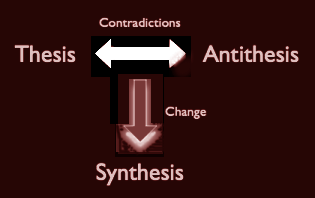By what measurement does somebody claim that historical revisionism has not accomplished much when people in positions of authority would never admit being influenced by it? Whatever influence revisionism has had will be largely untraceable.
I think it has had a lot of influence. It seemed to me, when Kofi Annan said at the Durban anti-racist conference in 2001 that the State of Israel should stop using the Holocaust as an excuse, that the fact that the veracity of the Holocaust story had been disputed for many years, with some arguments that are unassailable, very likely lay somewhere behind that statement.
.
There is a dialectical process that has to be taken into account. When somebody takes the extreme position that there was no Holocaust, others are influenced by that, whether they wish to be influenced or not. Some of them will then say, I am not a Holocaust denier but it does seem to me that there has been some exaggeration, or alternately, I am not a Holocaust-denier but the Jewish exploitation of that story is over the top — which is what the Secretary-General of the United Nations effectively said.
Look at all the Google hits for “I am not a Holocaust-denier but”: 6620 hits for that exact combination of words in the English language.
These people are able to speak more freely because there are “Holocaust-deniers” that have taken the extreme position. That is a major part of the influence of revisionism.
Extreme positions, insofar as they carry any credibility at all, define the limits of discourse. Shocking and upsetting people is part of the dialectical process. This is why it’s wrong to try to cater to people’s sensitivities at the expense of facts and logic (the basis of credibility) as Greggy Johnson has recently advocated, and as Mark Weber has been practicing for some years now.
